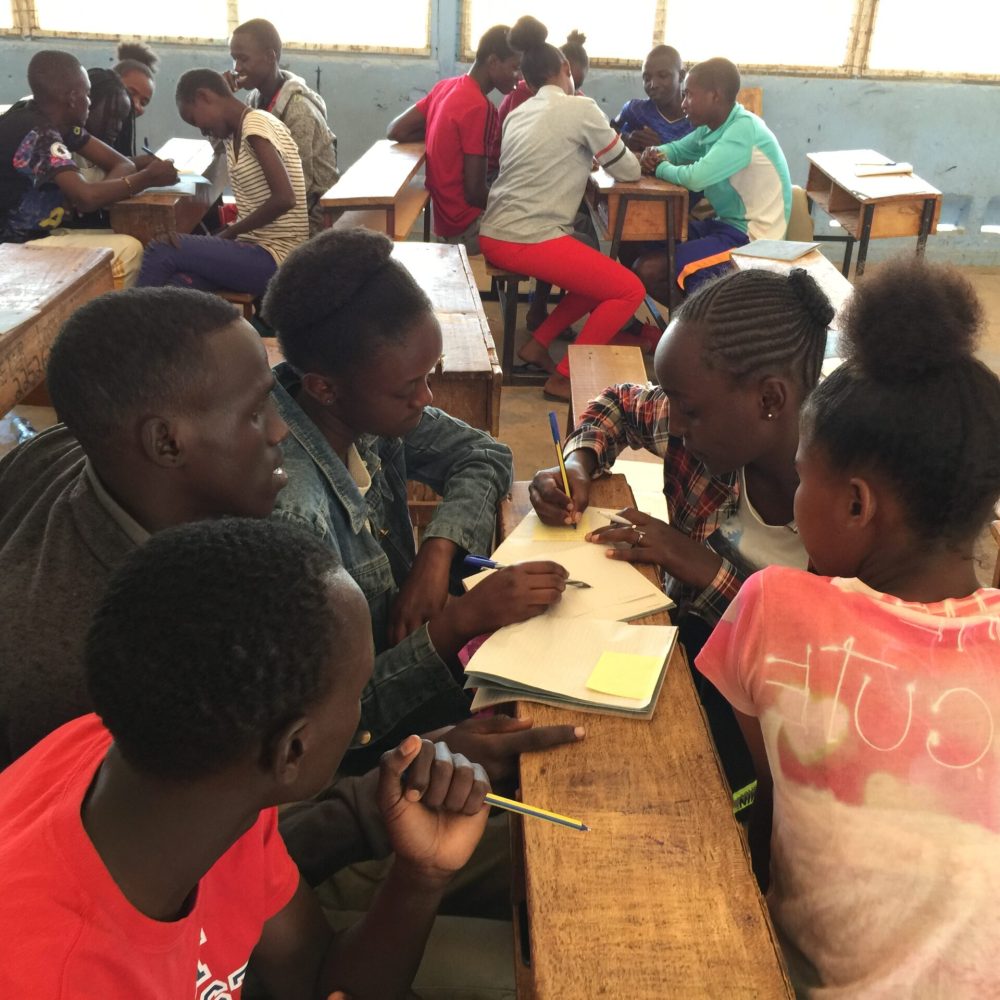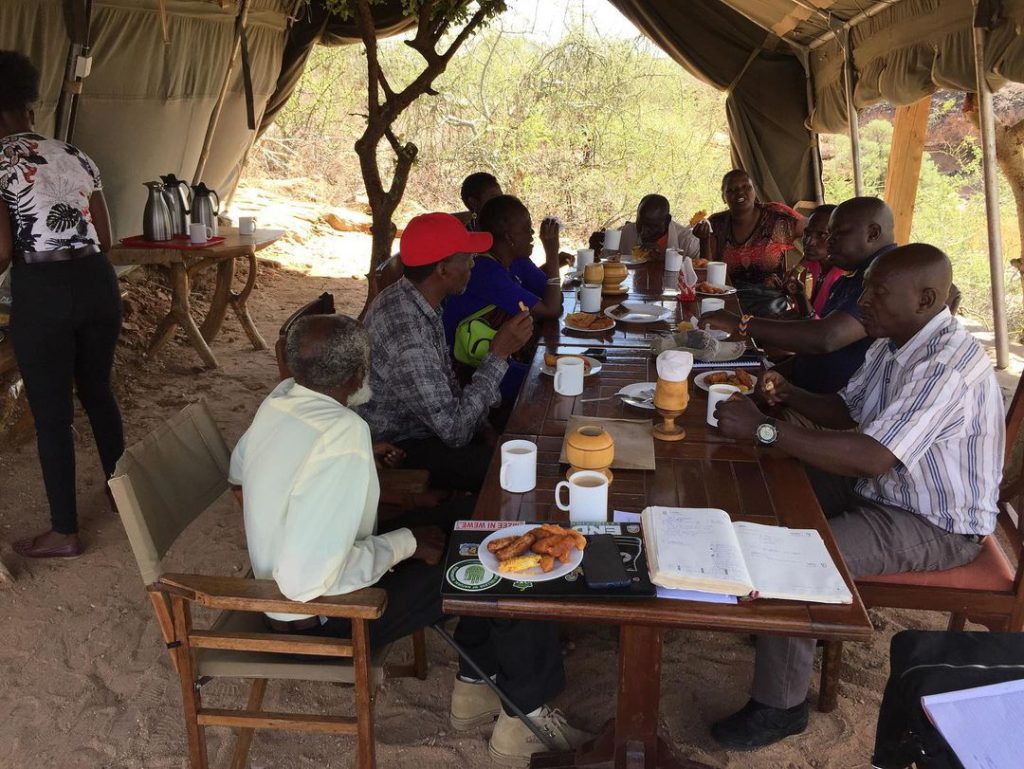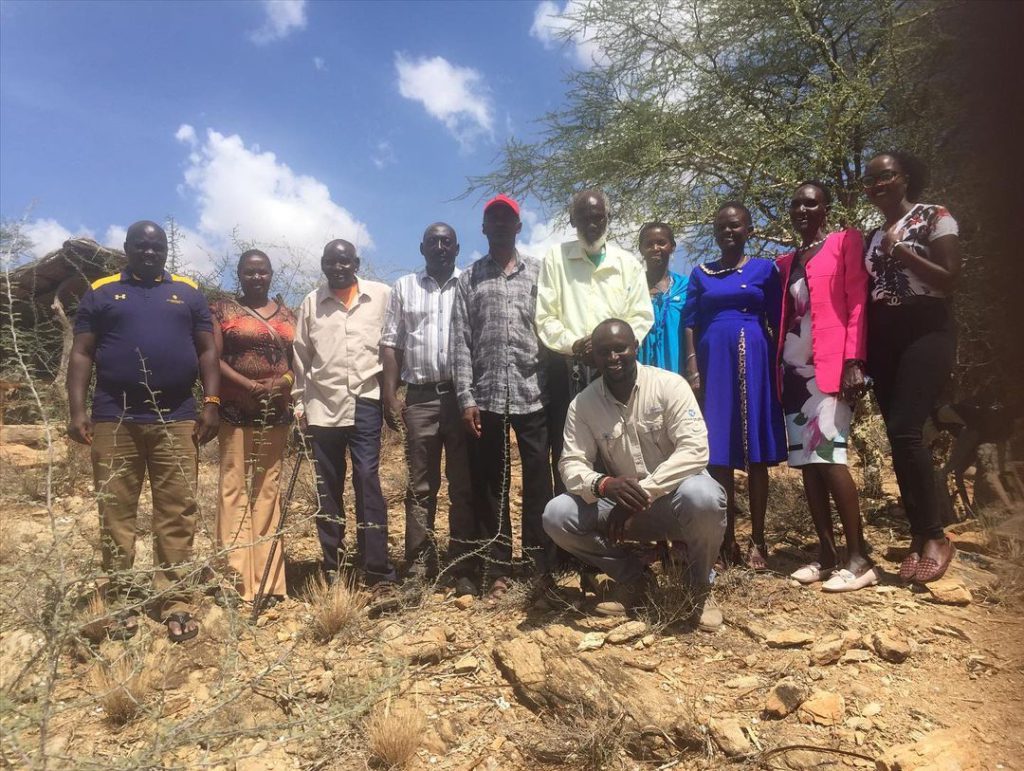Our Vision
A Samburu community with a population of motivated and inspired leaders with a commitment to improving their community through locally-driven solutions.
Our Mission
To provide equitable opportunities for the youth of northern Kenya to enhance leadership development and problem-solving skills through educational scholarships and opportunities for civic involvement that lead to a healthy and prosperous society.

Our Story
SYEF is the result of a brainstorm between Samburu educational leaders and U.S. based university researchers that started around 2005.
Two researchers from Colorado State University first visited the Samburu region in 2005 to study community-based conservation in partnership with a large non-profit. Over the course of many trips, they were the beneficiaries of the Samburu people’s tremendous hospitality and generosity, and over time the research evolved to become a collaborative effort with local partners.
At the same time, they were producing and benefiting from results of their research – articles, reports, and other publications – research which was only possible due to the hospitality and welcoming nature of the people in Samburu. And some of that research pointed to the high importance of formal education investment as part of the long-term strategy for healthy rangelands and communities in Samburu.
Over many conversations, the idea of SYEF emerged. From a practical standpoint, there was no mechanism to facilitate scholarships in the community; from a strategic perspective, the research pointed to the need for such an initiative. And for purposes of reciprocity, the community deserved it, after giving so many researchers the access needed to do their work.
In December 2010, we started SYEF, and our mission was narrowly focused on providing scholarships. We supported 10 students our first year, and relied on local leaders to help administer the logistics. The scholarship program has grown to 45-50 recipients annually, a leadership program, and entrepreneurship start-up initiative, and women’s beadwork cooperative. Our programmatic work is guided 100% by Samburu-based staff and advisory board members, while the U.S. side is focused on fundraising and administrative support.
Hard-working students
During visits the university team often observed the hard-work ethic of students; it seemed unusual to them to such young kids so committed and motivated to learn. After attending school all day, they would return home and continue studying well into the evening. And it was typically self-initiated; there was no teacher, parent or caregiver making demands to do homework. They just wanted to learn more and perform well in school. As the team got to know some the young people better, the students sometimes asked for help during their nightly studies. They were all immersed for a portion of many evenings in math problems, vocabulary lessons and science questions.Taking a leap
As the U.S. team continued their conservation research over several years, they also became more acquainted with local leaders and schools, and often discussed the limits of Kenya’s educational system in places like Samburu. Secondary school in Kenya is not free with costs started around $400 annually (and often higher) depending on the school, and such amounts are unreachable for most Samburu households.At the same time, they were producing and benefiting from results of their research – articles, reports, and other publications – research which was only possible due to the hospitality and welcoming nature of the people in Samburu. And some of that research pointed to the high importance of formal education investment as part of the long-term strategy for healthy rangelands and communities in Samburu.
Over many conversations, the idea of SYEF emerged. From a practical standpoint, there was no mechanism to facilitate scholarships in the community; from a strategic perspective, the research pointed to the need for such an initiative. And for purposes of reciprocity, the community deserved it, after giving so many researchers the access needed to do their work.
In December 2010, we started SYEF, and our mission was narrowly focused on providing scholarships. We supported 10 students our first year, and relied on local leaders to help administer the logistics. The scholarship program has grown to 45-50 recipients annually, a leadership program, and entrepreneurship start-up initiative, and women’s beadwork cooperative. Our programmatic work is guided 100% by Samburu-based staff and advisory board members, while the U.S. side is focused on fundraising and administrative support.
Our Values
Education
Education is the most strategic investment for effective and long-term community development and individual empowerment.
We financially support 100% of all school fees for 50+ youth annually. Our U.S.-based and Samburu boards include numerous educators and individuals affiliated with educational institutions, who can make strategic decisions about how to best support our youth academically.
We financially support 100% of all school fees for 50+ youth annually. Our U.S.-based and Samburu boards include numerous educators and individuals affiliated with educational institutions, who can make strategic decisions about how to best support our youth academically.
Gender Equity
There is no shortage of research about the benefits of investing in women! As our Samburu board noted, it’s also important to educate young men, to help ensure they treat women with respect.
At least 50% of SYEF scholarship recipients and business start-up entrepreneurs are female, and our beadwork cooperative is composed entirely of women.
At least 50% of SYEF scholarship recipients and business start-up entrepreneurs are female, and our beadwork cooperative is composed entirely of women.
Non discrimination
A thriving and peaceful community is possible only when opportunities are extended equally across gender and ethnic lines.
SYEF’s process for program participant selection does not tolerate any consideration for tribal or clan affiliation, and at least 50% of participants must be women and girls.
SYEF’s process for program participant selection does not tolerate any consideration for tribal or clan affiliation, and at least 50% of participants must be women and girls.
Fiscal responsibility
Impact is maximized when we allocate the most resources to initiatives with direct effects on youth development and leadership.
Each year, SYEF allocates at least 90% of its budget directly to program support. For additional finance information, visit our donate page.
Each year, SYEF allocates at least 90% of its budget directly to program support. For additional finance information, visit our donate page.
Transparency
SYEF’s annual tax reporting is readily accessible online, and a full summary of our activities, successes and shortcomings are posted on our website via an annual report.


Samburu Advisory Board
Lucy Karemi
(In Remembrance)
Boniface Isigi
Co-chair
Christine Namnyak
Co-chair
Resi Lepurdati
Program Coordinator
Apin Arik Yasin
Program Director





